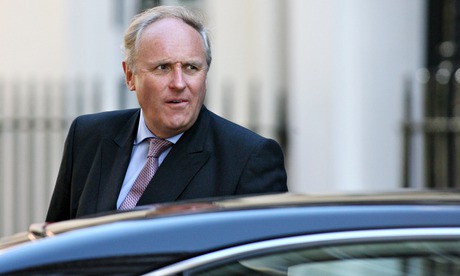
Vital evidence about phone hacking was withheld from the Press Complaints Commission when it held its inquiries into the News of the World's interception of voicemail messages.
The PCC was not informed by the Mail newspaper organisation that four of its Mail on Sunday journalists had been told by the police in 2006 that their mobile phones had been hacked.
Peter Wright, the then Mail on Sunday editor, was made aware of the hacking but did not publish the fact at the time, and it remained a secret for eight years until it emerged in evidence at the recent hacking trial.
Wright, personally a member of the PCC from May 2008, took over the place held by his boss, the Daily Mail's editor-in-chief Paul Dacre, who had served on the body from 1999 to April 2008. Two reports about hacking issued by the PCC in 2007 and 2009, which reinforced News International's "rogue reporter" defence, were compiled in ignorance of crucial information from the Mail group. Nor was the hacking of the four staff mentioned in evidence to the Leveson inquiry given by Wright and Dacre in 2012.
Guardian journalist Nick Davies, in his new book Hack Attack, explores the implications of the long silence, which he maintains was in effect supportive of "the lies" told by Rupert Murdoch's organisation.
It allowed Murdoch executives to get away with their cover-up by pretending that hacking was restricted to just eight victims, who were identified at the original trial of the News of the World's royal editor, Clive Goodman, and the paper's contracted private investigator, Glenn Mulcaire.
Three of them were royal aides. The other five were model Elle Macpherson, publicist Max Clifford, MP Simon Hughes, football agent Sky Andrew and Gordon Taylor, chief executive of the Professional Footballers' Association.
But the Mail on Sunday kept quiet about the four staff who were hacked – investigations editor Dennis Rice, news editor Sebastian Hamilton, deputy news editor David Dillon and feature writer Laura Collins.
The paper's managing editor, John Wellington, spoke to Rice and Collins in October 2006 – two months after Goodman and Mulcaire were arrested – about the police having informed him that their mobile phones had been hacked between April and July 2006. Wellington then told his editor, Wright, what had happened.
Rice recalls that he was first called by the police, who told him he had been hacked 80 times, before he discussed it with Wellington. He later discovered that his office computer had also been hacked. Collins, in a 2011 article about the incident, wrote: "We were advised to change the security settings on our phones … It was a shocking revelation."
But the four were not required to be prosecution witnesses against Mulcaire. Wellington, who remained unaware of the computer hacking, said the police approached the paper so that its staff could change their mobile pin numbers.
In his book Davies argues that the Mail's silence "was particularly weird" because of Dacre's being a PCC member when the commission's first report was compiled. And Wright was on the commission when the 2009 report was written, a report that was critical of the Guardian's revelations of widespread hacking and which was later withdrawn when the paper's reports proved to be true.
During his evidence to the Leveson inquiry, Wright said: "The PCC did ask News International whether it went beyond Clive Goodman. They assured the PCC it didn't. We didn't have really a proper means of testing whether there was any substance to that assurance."
But Wright did not mention the phone hacking of his own staff, which was itself suggestive that hacking went beyond Goodman, who was interested only in royal stories. In fact, the hacking involved both royal and non-royal stories.
It is understood that Wright cannot recall whether or not he informed Dacre about the hacking at the time. For his part, Dacre cannot recall whether he knew of it and therefore cannot remember whether or not he spoke about it to his PCC colleagues.
Two Mail group executives said they could not understand why the silence was considered to be strange. They both said the fact that five of the people named at the trial of Goodman and Mulcaire were non-royals showed that hacking went wider than Goodman's royal brief. Therefore, the hacking of their own staff was not of special significance.
They strenuously denied claims that Wright and Dacre had purposely withheld information, arguing that it was an inconsequential matter. The then PCC director, Tim Toulmin, is adamant that he was not informed by Dacre or Wright about the hacking of their staff's phones. He said: "I am clear that it wasn't mentioned. You telling me is the first I've heard of it."
It is broadly accepted that for the Mail on Sunday to have gone public in 2006 about the hacking by Mulcaire might have prejudiced his trial. But once Mulcaire and Goodman were sentenced to jail in January 2007, the sub judice rules no longer applied and there was no reason for the story not to be published.
The three Mail on Sunday victims contacted by the Guardian – Rice, Collins and Hamilton – appear unsure why the truth did not emerge. One suggested that the Mail on Sunday and the News of the World often made joint bids for stories and the Mail would not wished to have imperilled that relationship.
Another argued that the Mail editors were concerned not to add to what they considered to be an anti-popular journalism furore around the hacking scandal.
One former Mail on Sunday staffer, speaking on a confidential basis, said he was "not greatly surprised" that the paper managed to keep the lid on the truth. He said: "At the Mail, we were expected to keep quiet about things."

